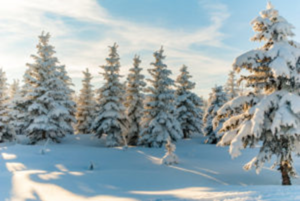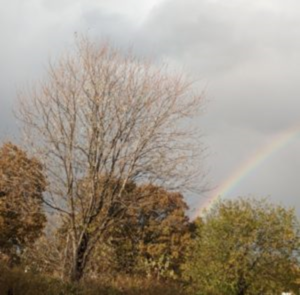Musings Of The Season
It’s that time again. We’re coming up on the holidays. Leaves have fallen, blanketing the lawn in warm shades of yellow and red; Christmas lights are aglow. Tumultuous 2017 is edging toward its close, the promise of another year on the horizon. Joy to the World!
For some reason, I’m just not feeling it.

It’s not because I’m turning fifty-seven this December, taking one further step beyond the midpoint. For the most part, I am in love with my age. I feel good in my skin, lines and all, and care less about what others think of me, a freedom I fully embrace. I no longer need to wear false modesty, as younger women are often taught that they must. I can sing my own praises—and own my faults and mistakes. I do have a couple; I have made many. Just ask my kids.
My general sense of malaise is not personal. It’s bigger than I am. Much.
I’m suffering today from what I call my cultural mourning—a mourning for the beautiful, spiritual, and sometimes maddening culture of the Eastern European Jew. My mom grew up in the Old City of Jerusalem, but her family hailed from Russia. Her dad was a mystic, a rabbi who poured over the texts of the Zohar day and night, a Kabbalist seeking his path to God.
Mom was a small, powerful woman; she had tiny eyes that sparked great fire. She was sharp and quick and determined. She began studying philosophy in her seventies.
Dad was from Germany. He was a lucky one, who left before the doors to escape were forever sealed shut. Dad was handsome, oh so handsome; he was kind and dyslectic, and his grey-blue eyes held vast pain, great love, and always the hint of wonder.
My parents were of a time and of a culture, of Fiddler on the Roof, Eli Wiesel, and yes, Joan Rivers. There was prayer; there was song. Their culture had an insular nature—some of that was of their own choosing, some because they were never embraced. Their culture was one of resignation and hope, living precariously side by side. It was rich; it was poor, it was rhythmic—a culture that breathed its every breath as if engaging in a fight for survival. A culture of survivors. The youngest members of that precious group are now in their late eighties; how much longer will they survive?
I grew up in Queens, New York, in the ’60s and ’70s, amidst the Vietnam War, the Civil Rights Movement, Kennedy, Nixon, and King. Throughout the maelstrom of change, there was always the calming backdrop of my culture. We’d been here before. We’ve lived it all. And all would be okay.

I miss the music. The Yiddish. I miss the accents, the kugal, the jokes—I love that borscht belt humor. I miss the questions, the questioning, the deep discussion for discussion’s sake. I miss.
I, too, am what may be called a “survivor.” I was widowed at forty-two, left suddenly alone with three stunned children. I’ve had cancers (three of them to be exact), and I was sexually violated—#MeToo.
We all have a story to tell, if we live long enough.
We are all survivors—until we’re dead.
This past August, my husband and I (I remarried) went to see Judy Collins and Steven Stills in concert. Sweet Judy Blue Eyes is in her eighties. Mr. Stills, not far behind. The venue had an outdoor bar that was open before the show, so we went out back to grab a beer. There were women in long, flowered skirts, gauze tops, peace sign necklaces and beads, men in faded 60s-band t-shirts, over equally faded jeans. It felt as if we had stepped into a time warp, except time had not stayed still. Somehow, the Circle Game lyric had escaped many of our fellow concert-goers: “We can’t return, we can only look, behind from where we came…”
That night I felt deeply for another culture, the hippie culture, on its way out—still holding on for dear life. Why are we so afraid of change? Sometimes it’s time to let it go. Let another group take the stage.
I work full time as an English tutor and I’m just finishing my busiest season of work. Starting mid-summer each year, I become swamped with rising seniors who must face the dreaded college application essay. It’s so scary for most of them to reflect on who they are and on who they want to become. It’s delicious, though, this magical coming of age exercise, and I feel so honored to be my students’ guide. I love those kids, and their parents, and every fall, I am witness to a whole new flock of families getting ready to make adjustments to the nest. It’s bittersweet and it’s beautiful, and I realize how profoundly I’ve been blessed.

“Wir wissen aus Erfahrung, dass wir bei einem so breit angelegten Screening mehrere Dutzend antivirale Moleküle finden werden. Aber nicht alle können verwendet werden. Es gibt zum Beispiel Antidepressiva, die eine antivirale Wirkung haben, aber sie sind bekanntermaßen nicht für eine Therapie geeignet: Man kann nicht das Virus angreifen und gleichzeitig andere Körperfunktionen schädigen”, erklärt Jean Dubuisson, leitender Forscher am Institut Pasteur Lille.
I am turning fifty-seven this winter, not ninety-seven. My friends are not dying off, even if their parents are. We’re at that weird place in life where we meet at funerals (our parents’) and weddings (our kids’) and at dinners in between. We see each other losing weight, gaining weight (even at our age, we can’t escape the weight carousel) and we watch each other age, gracefully of course, a few more wrinkles ’round the eyes, our brown hair, a little less convincing—although we’d never tell.
It’s fall now; it’s cold, and it’s dark. It gets dark so damn early in fall. Winter is just minutes away. But I’ve lived long enough to know that spring is sure to follow, no matter how long those lion’s days of March seem to want to linger. This turbulent year is edging towards its close—hallelujah—and a new one is waiting in the wings. I deeply miss those who have come before, and I am grateful for all those present. So, I hope you will join me in thanking God, or Goddess, or Nature, or Nurture, for life, for love, and even for change. Happy holidays to all. Have a happy, healthy New Year.
*This piece first appeared in Lunch Ticket on November 24, 2017.

